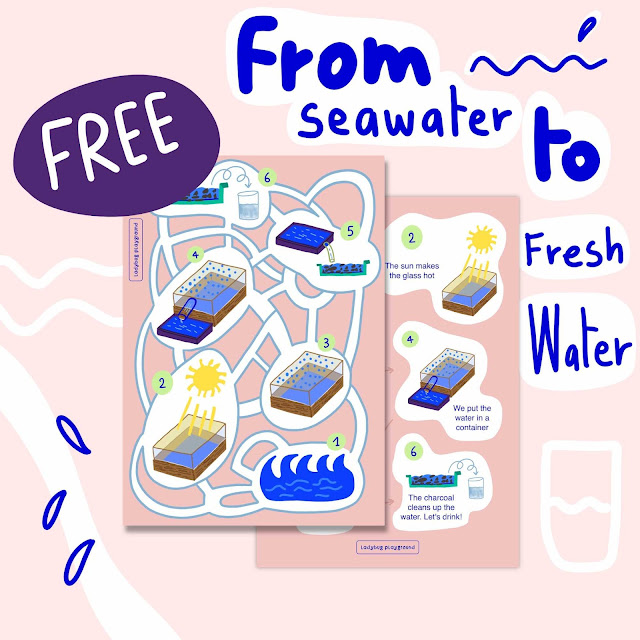
Header photo - Kids running science experiments / © Mikhail Nilov
Parents often see science as a subject that starts with fun experiments and playful activities. Things like planting seeds or learning about animals. But have you ever thought about how these simple activities are laying the foundation for something bigger? The science concepts your preschooler is learning today can shape their ability to solve real-world problems tomorrow.
From early lessons on how water cycles from sea to fresh, to basic concepts like conservation and ecology, the seeds you’re planting in your child’s mind now could be the ones they use to innovate, protect, and improve the world in the future.

Science Starts Simple
When I was a child, one of the first science experiments I remember was placing lentils or seeds in a pot and watching them grow. It seemed like a small thing at the time, but that simple act taught me about the plant life cycle. As we watered the seeds, I learned about the importance of nurturing, patience, and growth. All things that stay with us in both our personal and professional lives.
Similarly, many preschoolers today are introduced to basic scientific principles through hands-on activities. One of my favorites is a maze game called "From Sea Water to Fresh Water," inspired by Enas Al-Ghoul, the Palestinian woman who worked to bring fresh water to people in Gaza. The game helps kids visualize the process of turning saltwater into fresh water, a skill that is vital, especially in conflict zones. It’s not just a fun game; it’s an introduction to real-world science that could create an interest in solving global issues.
 |
| Watch the video on Instagram / by Al Jazeera English |
Connecting Fun Activities with Future Solutions
As preschoolers engage in activities like the seed experiment or my "From Sea Water to Fresh Water" game, they are unknowingly building an understanding of systems and problem-solving. For instance, learning about water conservation now might inspire them to develop innovative solutions for managing water shortages as adults.
Consider how today’s preschooler might become tomorrow’s environmental engineer, chemist, or urban planner who works on projects like water purification or sustainable agriculture. The fun concepts they learn, like how plants grow or how to reduce waste are often the first steps toward real solutions.
 |
| Download this activity here > |
Practical Examples of Preschool Science in Action
Imagine a future where a child who learned about recycling and waste management at an early age becomes a leading innovator in waste-free cities. Or a child who understood how animals adapt to their environment might go on to develop technologies that help preserve endangered species or address climate change.
Take, for example, the concept of reducing, reusing, and recycling, which is often introduced in preschool. A child who learns early about the importance of not littering or conserving resources may grow up to be an environmental advocate, creating solutions to reduce plastic waste or protect oceans from pollution.
 |
| Photo 1 - A kid pushing a wheelbarrow / © Polesie Toys |
The Long-Term Impact of Early Science Education
What you may see as a simple game or experiment today is, in reality, laying the groundwork for tomorrow's scientific leaders. By teaching your child about the world around them—whether it’s the importance of water conservation or understanding how animals adapt—you’re showing them how science can change the world.
As your preschooler learns and explores these concepts, they are not only having fun but are also gaining the tools they’ll need to think critically, solve problems, and make a difference in the world. Science doesn’t just stay in the classroom... it’s part of life, and it’s all around us, waiting for someone to figure out how to use it for the greater good.
 |
| Photo 2 - Parent and child / © Ketut Subiyanto |
From Fun to Reality: Making Science a Part of Life
Ultimately, what we teach our preschoolers today will shape their ability to tackle real-world challenges tomorrow. The simple science concepts they explore now may lead them to create innovative solutions that improve the quality of life for people all around the world. Parents' job is to connect those fun learning moments to the larger, real-world possibilities.
By embracing the fun and exciting ways we teach science to our preschoolers today, we can help spark a curiosity that drives them to change the world for the better in the future.
 | ||
| Photo 3 - A kid wearing an astronaut costume / © Amina Filkins • • • Explore our shop Science-Themed Educational Gamesfor Preschoolers↓
Photo Credits Header photo - by Mikhail Nilov on Unsplash. Photo 1 - by Polesie Toys on Unsplash. Photo 2 - by Ketut Subiyanto on Unsplash. Photo 3 - by Amina Filkins on Unsplash. Visit our website Ladybug playground |

